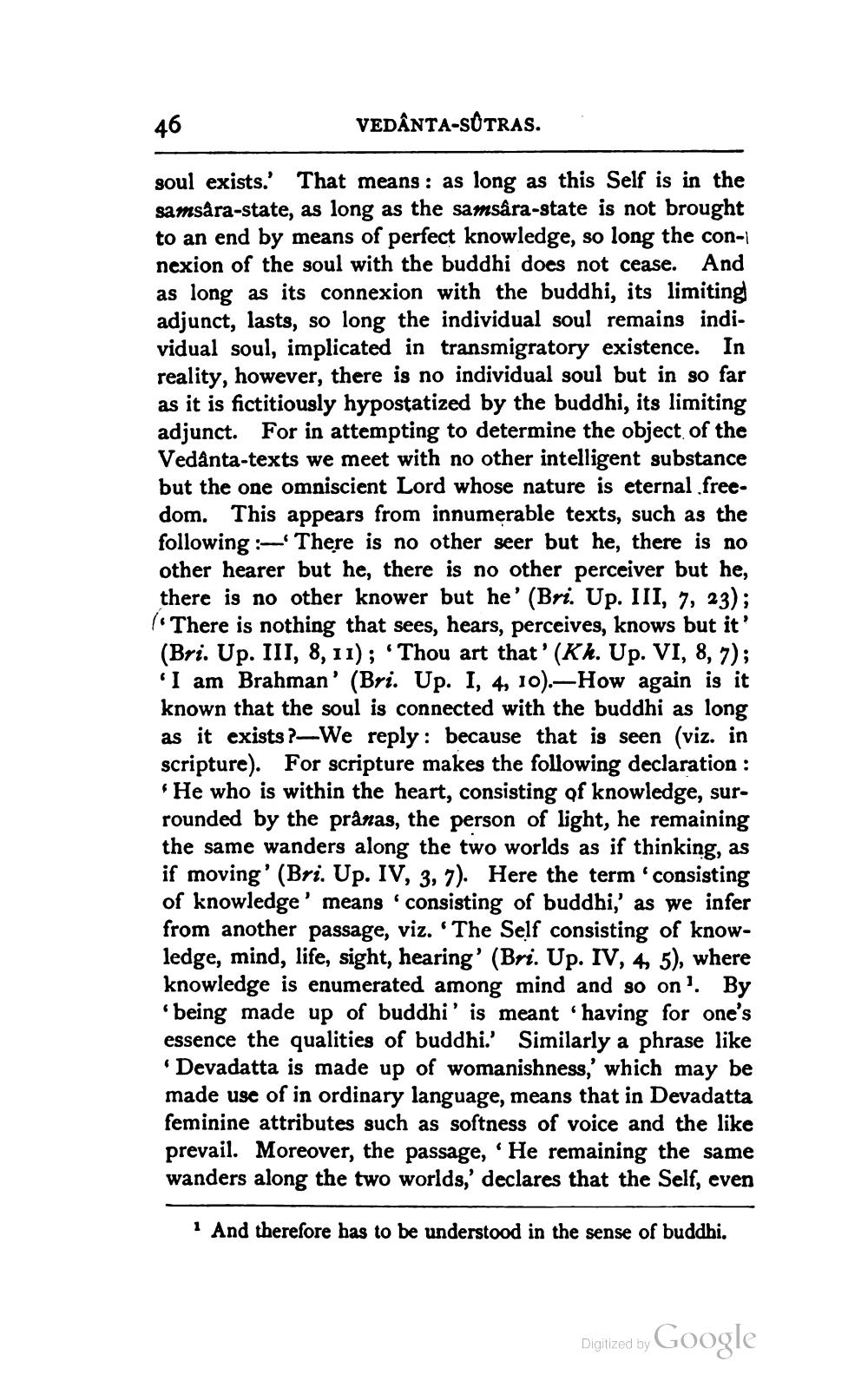________________
VEDÂNTA-SÚTRAS.
36
soul exists.' That means : as long as this Self is in the samsara-state, as long as the samsara-state is not brought to an end by means of perfect knowledge, so long the connexion of the soul with the buddhi does not cease. And as long as its connexion with the buddhi, its limiting adjunct, lasts, so long the individual soul remains individual soul, implicated in transmigratory existence. In reality, however, there is no individual soul but in so far as it is fictitiously hypostatized by the buddhi, its limiting adjunct. For in attempting to determine the object of the Vedanta-texts we meet with no other intelligent substance but the one omniscient Lord whose nature is eternal freedom. This appears from innumerable texts, such as the following :- There is no other seer but he, there is no other hearer but he, there is no other perceiver but he, there is no other knower but he' (Bri. Up. III, 7, 23); /* There is nothing that sees, hears, perceives, knows but it'
(Bri. Up. III, 8, 11); 'Thou art that' (Kh. Up. VI, 8, 7); "I am Brahman' (Bri. Up. I, 4, 10).—How again is it known that the soul is connected with the buddhi as long as it exists ?We reply: because that is seen (viz. in scripture). For scripture makes the following declaration : "He who is within the heart, consisting of knowledge, surrounded by the pränas, the person of light, he remaining the same wanders along the two worlds as if thinking, as if moving' (Bri. Up. IV, 3, 7). Here the term consisting of knowledge' means "consisting of buddhi,' as we infer from another passage, viz. 'The Self consisting of knowledge, mind, life, sight, hearing' (Bri. Up. IV, 4, 5), where knowledge is enumerated among mind and so on. By
being made up of buddhi' is meant 'having for one's essence the qualities of buddhi.' Similarly a phrase like
Devadatta is made up of womanishness,' which may be made use of in ordinary language, means that in Devadatta feminine attributes such as softness of voice and the like prevail. Moreover, the passage, 'He remaining the same wanders along the two worlds,' declares that the Self, even
1 And therefore has to be understood in the sense of buddhi.
Digitized by
Digilzed by Google




